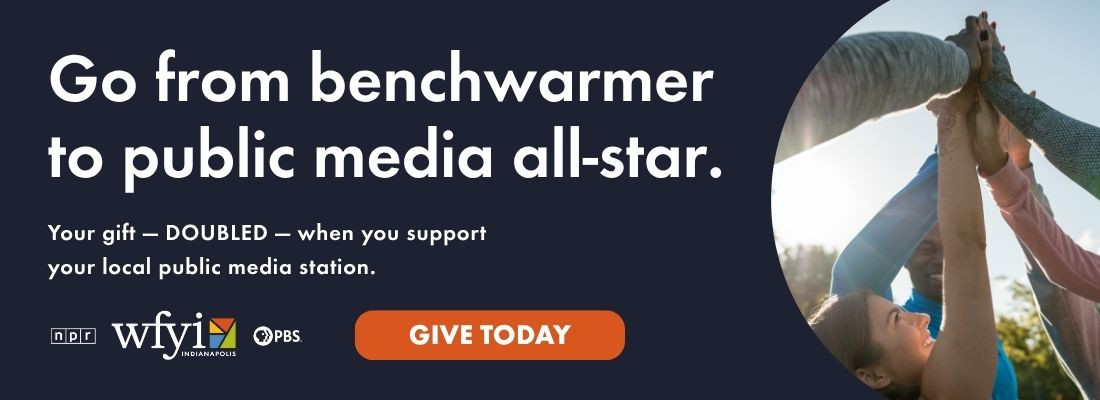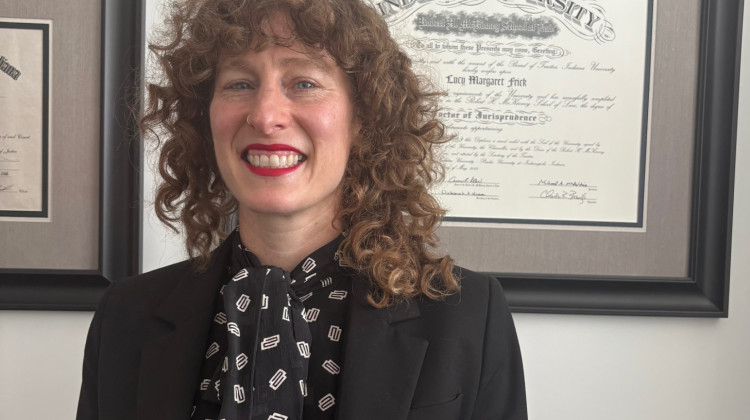An estimated 17 percent of Marion County residents were food insecure and that was before restaurants closed and events cancelled, leaving many people without employment.
Food banks, pantries and other meal services are ramping up to help as the number of people in food lines grows, right when people are no longer allowed to stand in line.
Kate Howe is executive director of Indy Hunger Network, an organization that collaborates with local food assistance groups. She says normal operations bring people together, to have meals, choose food at a pantry and volunteer to help others.
Now, much of normal has been thrown out the window.
"People are having to find new ways and new places to get food," says Howe. "And then people who've never needed food assistance are finding themselves needing it and not knowing where to turn."
On top of that, some smaller food pantries have closed, and not all schools can provide meals after closing. Those who can provide the service have a few ways they can continue and still social distance.
One is a drive through model.
Gleaners Food Bank was one of the first to convert to it and in one day last week it served nearly 1200 families -- a sharp spike up from its daily normal of 400. Gleaners also partnered with Indianapolis Public Schools to pack thousands of family food boxes.
CEO John Elliot says they’re making it work.
"You can't assemble food boxes for Gleaners via laptop from home. So at some point we have to balance it all," says Elliot.
There are many hurdles. They include a sharp cut in retail donations, because of demand at the grocery store. About half the number of volunteers, who are often older and more at risk of catching the virus. And food sources. Usually Gleaners buys direct from large food manufacturers that offer deep discounts.
Not any more Elliot says.
"We had a call just beginning of the week where our food sorcerer here was told that we were number 17 on the waitlist for an order," says Elliot.
Another challenge is funding -- and the community is stepping up to help, including more than a million dollars raised through a Colts community challenge. A local support fund also donated money for Gleaners and other area food assistance.
And Elliot says the city has helped.
"We have a city of Indianapolis dpw licensed driver who's driving Gleaners trucks around the facility today," says Elliot.
All this assistance is employed to reach the growing need -- last week Gleaners said it more than doubled.
Indianapolis non-profit Second Helpings CEO Jennifer Vigran says they’ve been able to ramp up because they’ve been preparing for the COVID-19 outbreak for weeks. She says Indianapolis’s existing food assistance network and collaborations prepared together.
"It's hard for me to imagine any community that has adapted or could have adapted as quickly as we did because of that collaboration," says Vigran.
Second Helpings partnership with Sahm’s restaurants to get a satellite kitchen that allows it to prepare an additional 1000 meals a day for families.
But Vigran says people will still fall through the cracks, especially low income seniors and others who may be isolated without resources.
"We've got people who are stuck in their apartments for a very long time, afraid to go out and purchase and not able to, you know, order doordash and bring that comforting meal into their homes," says Vigran.
Groups that target that problem, like Meals on Wheels and CICOA, still need more money and volunteers.
And as the crisis grows, Gleaners’ John Elliot worries they won’t be able to serve everyone in the food lines. He worries about the lack of other services for those same people as well.
"Please remember, for the families that are struggling, they're struggling with several interconnected issues at once. Not just hunger," says Elliot.
 DONATE
DONATE









 Support WFYI. We can't do it without you.
Support WFYI. We can't do it without you.